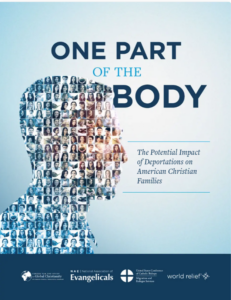
TRACY, Calif. (BP) — During most of 2020, the 5 Loaves 2 Fish Food Pantry provided 245 grocery boxes per week. With no more than 10 volunteers available, the pace has slowed considerably by comparison down to 75 boxes. But rising food costs and other factors have made its presence no less needed, said director Kevin James.
Some items remain more sought after than others.
“Milk and meat seem to be the most desired and hardest to find,” said James, senior pastor of New Creation Bible Fellowship. “The families are excited when they receive them.”
Higher volume items donated include bread, canned vegetables, canned soups, oatmeal and canned fruit. All are crucial this week – the ministry’s working deadline for having enough in place to meet the expected need at Thanksgiving.
“Normally, we try to have items collected two weeks prior for each holiday because we always have a set amount to distribute,” James said.
The 5 Loaves 2 Fish Food Pantry, which also supports a local elementary school, has been in operation for more than eight years.
The U.S. Department of Agriculture (USDA) has collected information on food insecurity since 1995. Recently-released statistics noted that 12.8 percent of households were not food secure in 2022. That was a significant increase from the 10.8 percent in 2021 and the highest rate of food insecurity since 2014, when the country began to pull out of the Great Recession.
Numerous churches throughout the country operate food banks throughout the year. The holidays bring more requests, though. And with rising food costs, everyone is working harder to stretch a dollar.
First Baptist Church in Hendersonville, Tenn., launched its food ministry, Feed Sumner, in April of 2022. Named after the county it serves, Feed Sumner distributes food to some 600 families each month.
Distribution comes mainly on the second Saturday of the month alongside the addition of other deliveries, said First Baptist’s senior associate pastor, Bruce Raley.
The effort requires 100-120 volunteers, he said, with it at times approaching 1,000 different people helping in some form. Items are purchased at a substantial discount through food banks. Those wanting to support are encouraged to give financial gifts to Feed Sumner.
“But we also want our church members to be a part of the ministry,” Raley said. “So, we have a staple of the month that we promote. It may be peanut butter, but then the next month some kind of pasta. It helps people feel they are tangibly involved.”
Items in high demand can run in cycles, with others being a consistent need.
“We always try to provide some kind of non-refrigerated milk product for families and children,” he said. “Sometimes those are in short supply.”
In recent weeks Feed Sumner has also made “Seasons of Blessings” bags available that contain the means to produce a full Thanksgiving meal. Those will also be available at Christmas.
As food prices have gone up, so has the need for ministries such as the one out of his church.
“It’s not just families, but the elderly who are on a fixed income,” Raley said. “Money just doesn’t go as far as it once did.”
When the consistent need to pay for medicine and medical care is part of the equation, the choices become even more consequential.
“Older people, in particular, will cut back on food costs if they have to,” he said. “We’ve seen the numbers increase over the last year of people who have food insecurity.”
Mission Norman is an independent ministry that began out of Union Baptist Association in Norman, Okla., and is still supported and staffed by UBA church members. Coordinating that effort falls largely to Rebecca Dossey, who joined the organization eight weeks ago as the Development and Fundraising Liaison.
“Currently, Mission Norman is assisting around 700 families per month,” she said. “They come in and get an allotment of groceries that last about a week and a half to two weeks.”
For approximately 20 years the ministry has operated out of a small house but is currently preparing to move into a 7,500-square-foot building. On average, 450 volunteers contribute each month.
The more popular and helpful items are boxed cereals and peanut butter.
“We deal with a lot of food insecurity but homelessness as well,” Dossey said. “Those items are easier to transport in a backpack or something. Of course, canned goods are always good as are proteins, rice, bread, nuts, dried beans – things that people can stretch.”
Food insecurity can strike anyone and anytime, she added.
“I’ve heard people say something like, ‘How can you be driving a $40,000 car and needing groceries?’” said Dossey, who has worked in food distribution since 2014. “The thing they don’t understand is, for instance, is that your spouse or child may get a terminal illness and you have to make a choice of paying for food or medical treatment.
“Food insecurity automatically becomes an issue. You’re just trying to keep your head above water at that point,” she said. “There can be several factors that put you there as well as a big misconception among people who don’t understand your story.”























